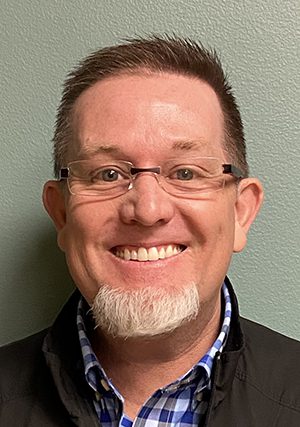Safe, secure income can help reduce stress. Brad Pistole
Finally, I can file for my social security retirement income. It has been a long time coming, so many years of paying in the absolute maximum to the Social Security Trust Fund. Finally, now I get my check each month, Woo Hoo!
Along with my newfound financial windfall, my doctor informed me I also received a “free” evaluation as my introduction to Medicare, and he was required to complete it. Since I am now qualified for Medicare, the government wanted to evaluate my health. Therefore, I was asked to complete a written “senility” test, three pages of questions during the exam. Now, these were not difficult but were somewhat telling of what many other seniors may face.
How much exercise? How many glasses of wine a day? How often do I socially interact with others? Am I depressed? And on it goes. I completed the test and patiently awaited the doctor and his portion of my “Welcome to Medicare” evaluation. During my doctor’s questionnaire, he asked me to memorize three words and repeat them several times during his questioning. It seems simple enough, and in fact, it was.
It occurred to me later in the day that this whole process could be quite intimidating to many in my age group; many age 66 are not as healthy as I have been blessed, and what does it mean if you are depressed, short on friends, short on funds and worried about your future?
I recently read a survey conducted by The Phoenix Insurance Company regarding the baby boomers’ attitude towards the future. How would they transfer to the retirement years? What were they worried about? The statistics were very telling, concern over health costs, living expenses, and an unknown future.
Among all Americans, 55% figure they’ll have to work longer than they want to because they won’t afford retirement. And the baby boomers are not alone; we are in sync with the next two generations following us. For example, 64% of Millennials and 74% of Gen Xers had this same worry and concern.
Baby Boomers are afraid of more than not being able to retire comfortably. They’re also afraid they won’t afford necessary health care or even make ends meet. And as if that’s not enough, they’re also worried that their kids (or grandkids) will be moving back home. How positive would you be if money concerns shared with your children could mean that grandchildren could be using up your significant retirement income? Unfortunately, it is happening more than any of us know.
The poll indicates that 68% of Americans working or who have a spouse working are afraid there won’t be enough money for retirement. On top of concern over having sufficient retirement income, there are health expense concerns. Among those still working, fear of medical expense covered by Medicare as the baby boomer transfers from company-sponsored (or private) insurance coverage becomes a huge concern. 63% fear they’ll run into medical bills that they won’t be able to pay. 40% of the employed worry that they or their spouse will have to tackle a second job to meet everyday expenses.
And, of course, there are inflation concerns. The current inflation rate hovers around 2.2% annually, which seems reasonable until you realize the government (through the Consumer Price Index http://www.bls.gov/cpi/ ) does not include in that calculation rate is food or energy. (Under the Reagan Administration, food was omitted from the CPI, and under the Clinton, Administration energy was omitted.) So what is the real inflation rate, and should the baby boomers be worried. Yes!
The Northwestern Mutual recently conducted a survey asking 2,100 baby boomers about their financial approach to retirement and income planning. 43% say their physical health is their most important concern, while 38% say their personal financial situation is a “top priority.” Despite these responses, 66% of those surveyed do not have a financial plan in place. Of the 31% of adults that say they have financial plans, slightly more than half developed such plans with a financial advisor. Furthermore, only three out of every 10 adults are working with a financial advisor.
Moving from a salaried job to a fixed income scenario, housing costs also loom as a huge concern. 23% of retired baby boomers are afraid of their mortgage costs and have a genuine fear of losing their homes.
Health, retirement cash flow, inflation, children, grandchildren concern all adds to the stress and worry of those retired and those about to be retired. One solution could be to find an advisor who deals with a lowered risk approach to income planning. It is possible to have enough income if you look at your retirement funds from a different perspective.
“It is not the pile of money you have, and it is the income you receive each month.” So spend all of your monthly money each month because guess what? It comes the next month again!
As an example, if you are concerned about money and hoard your funds with a fear of running out of money (actually, 47% of those surveyed had this fear), consider looking at your funds from the other side of the table. Why not use some for income now? Then, send some ahead for use in 5 years, 10 years, and 20 years. This is called income laddering, and it can be done without any risk exposure. All it takes is working with someone who understands that sufficient monthly income means reduced stress and living a happier life.
Once I completed my “Welcome to Medicare” evaluation, my doctor (25 years) told me he was retiring. I was indeed amazed, especially since he is 5 years younger than me. Did I inquire why? His answer was not the work, and he indeed loves practicing medicine; it wasn’t the hours or the continuing education and professional requirements; it was far simpler. It was the nation’s health insurance industry; it just wasn’t worth it any longer, constantly fighting to be paid for services already provided. His insurance billing and cash flow management was nearly 50% of his overhead, more than his nursing costs. Plus, the demand from insurance companies to discount the cost of his services after the fact, the constant war with the insurance companies. My “Welcome to Medicare” took about an hour to conduct paid him a fee of $35, $35 for an hour, for the doctor and his staff. I asked why he did it for such a small amount.
“I have to because the government requires that 35% of my practice come from your age group; they are even dictating my patient mix.”
That sort of says it all doesn’t it?
What does that mean for us? Will the government someday say we have to sell our products to a pre-designated blend of age groups? How far will all this government intervention reach into our business lives?
It was an interesting experience, but it was far more like an eye-opening event for me. Fortunately, I am still in excellent health, and financial concerns are not paramount.
But how many of our target market are worried, concerned, or completely stressed out?
My guess is plenty. Spread the word about safety and security; many options exist. Consider looking at income planning through a different set of glasses; remember, it is not how much money you have; it is how much income you have.
Trinity Insurance & Financial Services Inc. 5511 N.Farmer Branch Rd., Suite 101, Ozark MO 65721. 417-581-9222 Register for Brad’s FREE Newsletter at 888-998-3463 or click his newsletter link: Brad Pistole Newsletter Brad is a member of Syndicated Columnists, a national organization committed to a fully transparent approach to money management.















